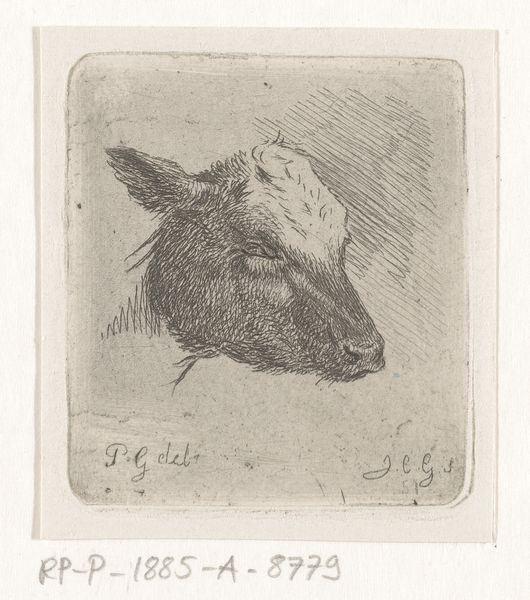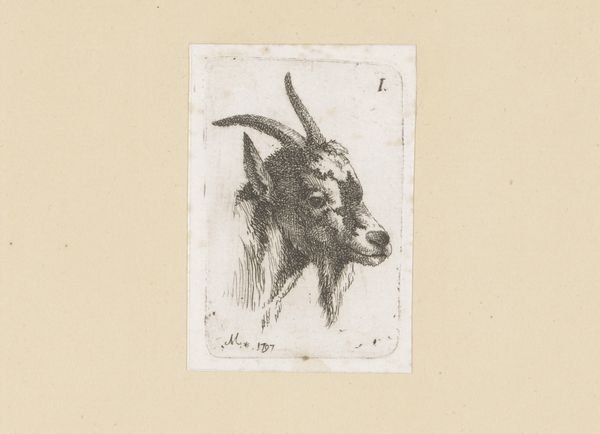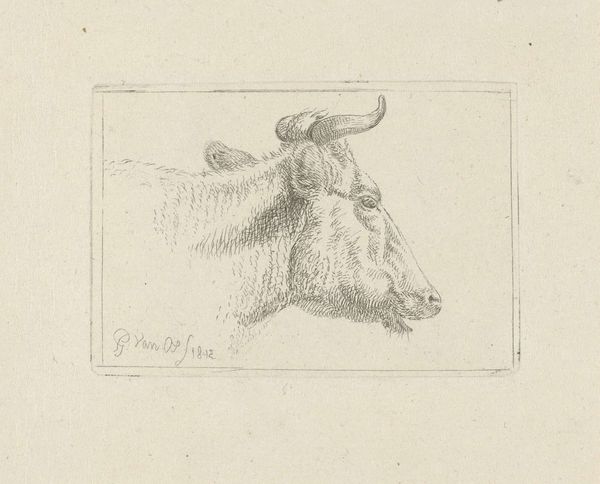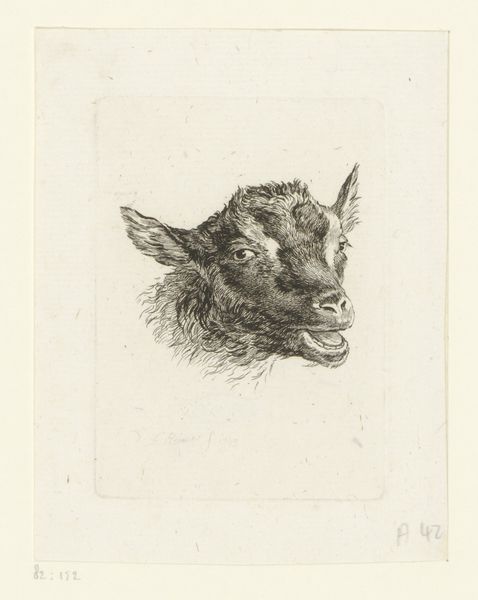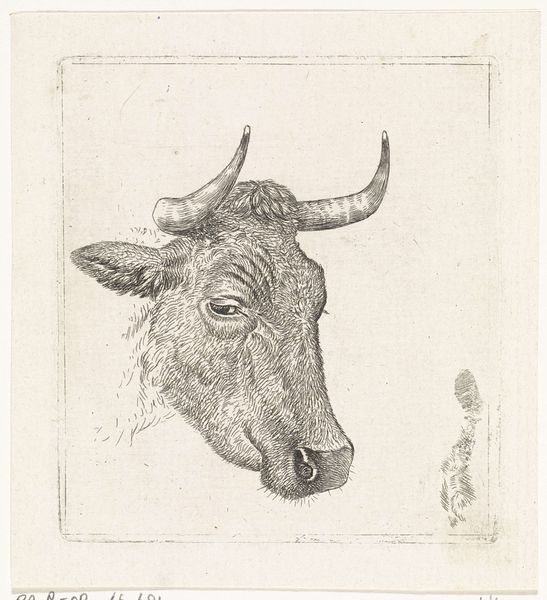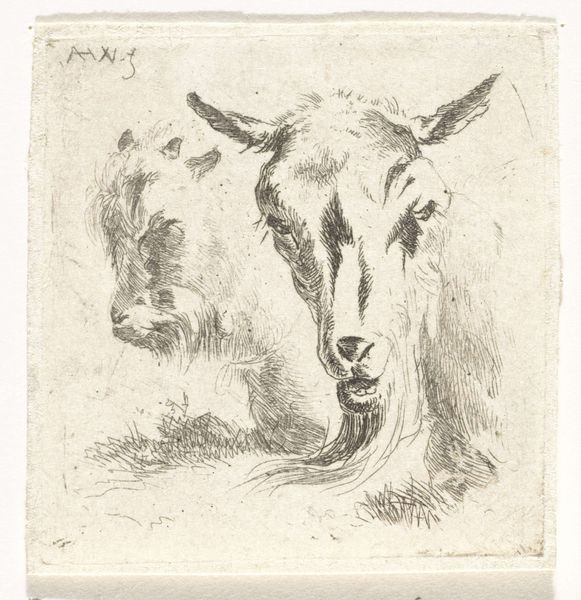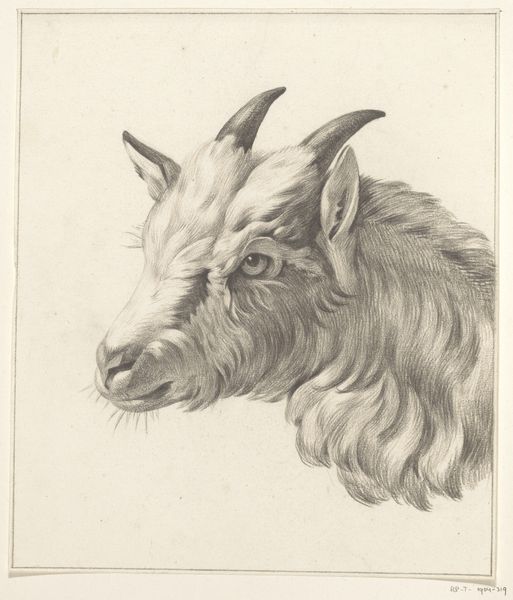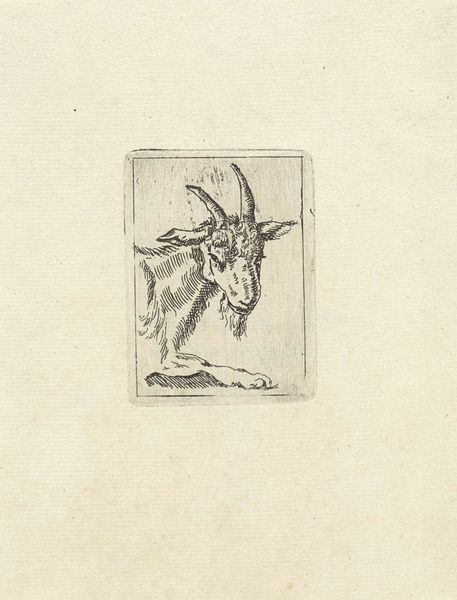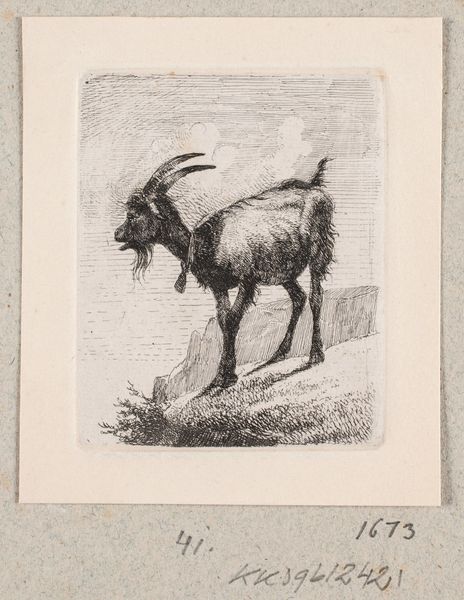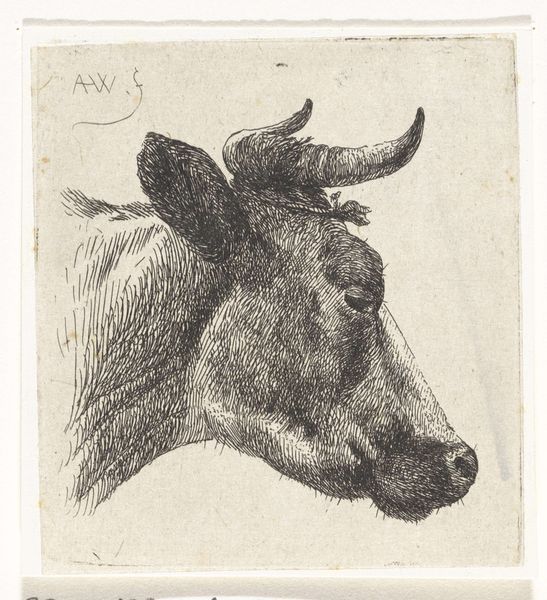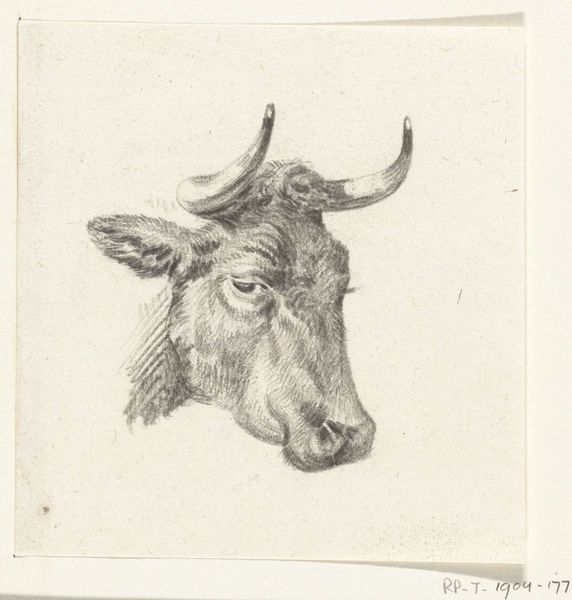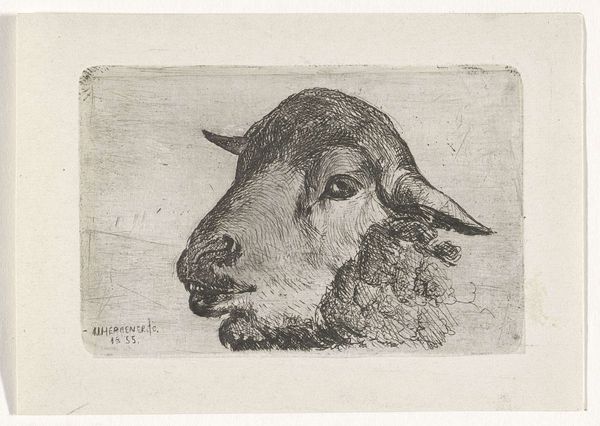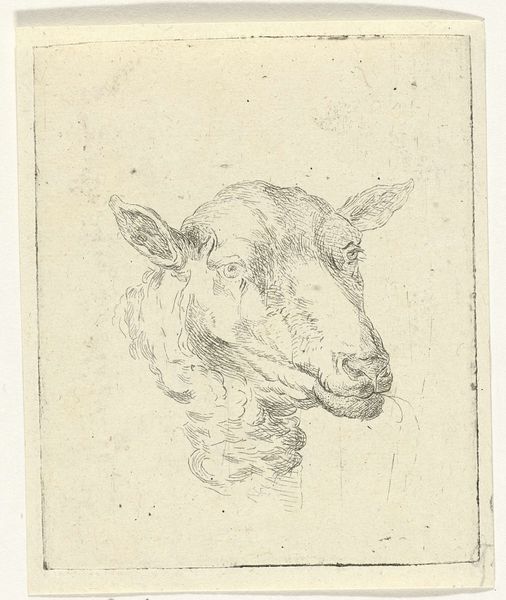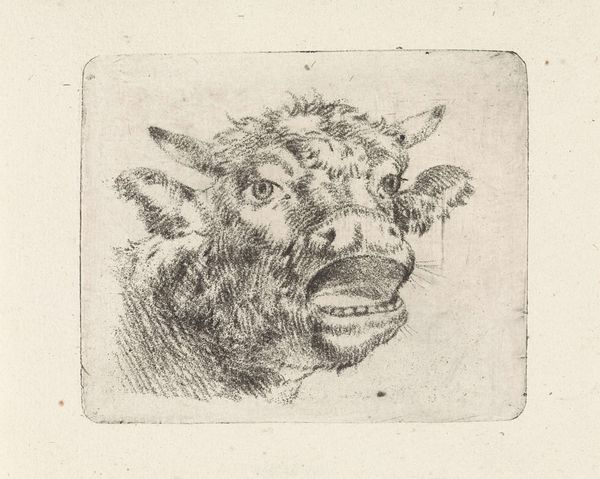
#
pencil drawn
#
amateur sketch
#
toned paper
#
light pencil work
#
pencil sketch
#
old engraving style
#
incomplete sketchy
#
personal sketchbook
#
sketchbook drawing
#
pencil work
Dimensions: height 41 mm, width 46 mm
Copyright: Rijks Museum: Open Domain
Johann Friedrich Morgenstern made this etching of a sheep’s head in 1797. At first glance it seems to be a simple study of animal anatomy. However, etching was closely linked to the development of print culture in the late eighteenth century. The print medium allowed images to be reproduced and circulated widely, influencing public opinion and taste. Images of rural life, like this sheep, reflected the growing interest in agriculture and the romantic idealization of nature that developed in the late 1700’s. In the German states at this time, intellectuals and artists were developing the concept of ‘Heimat’ or homeland as a way of unifying regional pride and culture. Small images such as these would have contributed to a growing sense of shared identity that was being constructed in culture, and even influencing the economy. Historians consider the cultural and historical context in which artworks were made to better understand its meaning and significance. This includes studying printmaking techniques, agricultural history, and cultural movements.
Comments
No comments
Be the first to comment and join the conversation on the ultimate creative platform.
